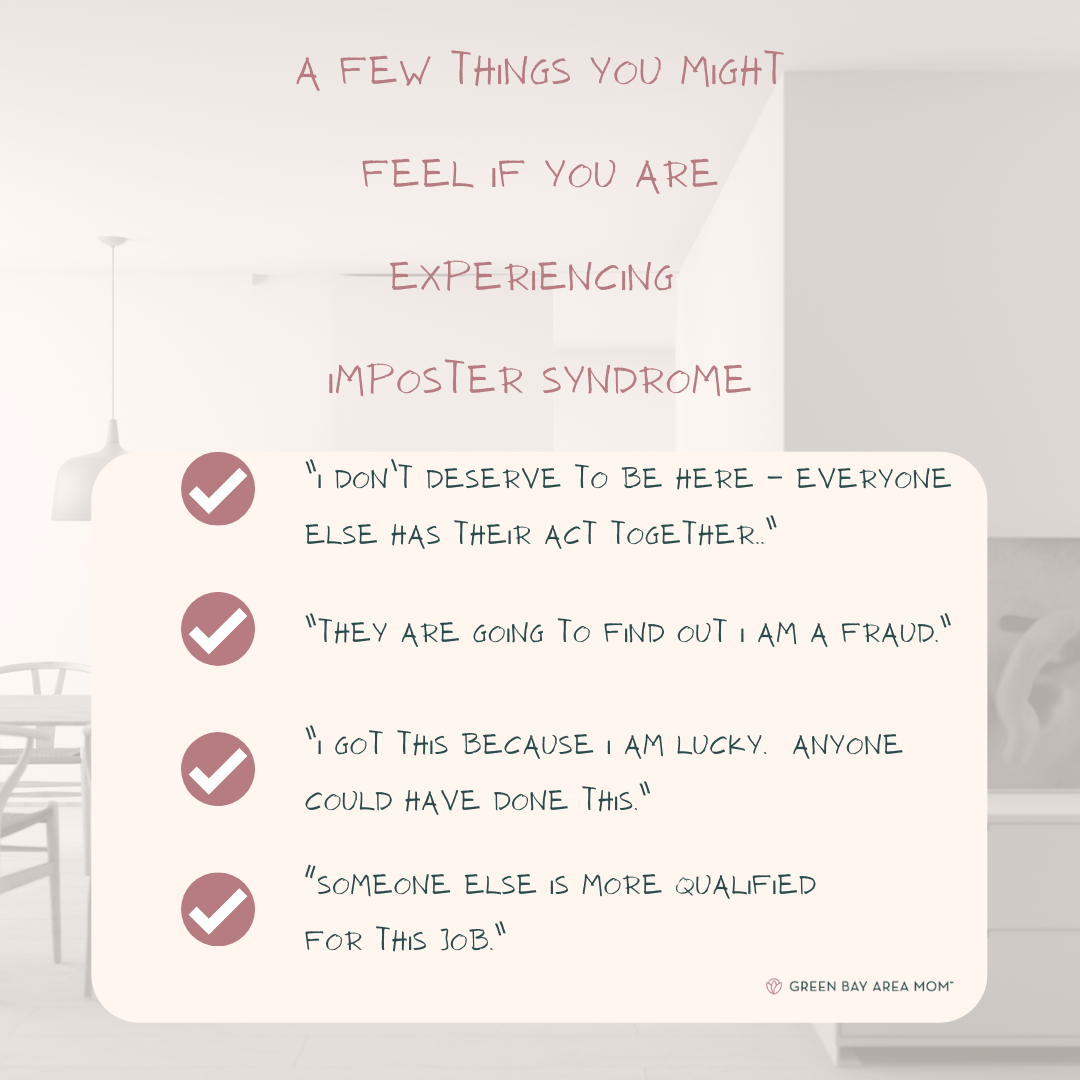In February of 2020, I earned a promotion at work – I knew it was the final stepping stone toward the job I had wanted for many years. In June 2020, I was moved into the role – the big career position – the culmination of years of hard work. I was ecstatic for about 2 weeks, then self-doubt came creeping in. It was just a whisper here and there to start – on a bad day, or in a bad moment… then it was more persistent and it got louder. I started to wonder if I had made a mistake, or if the leadership in my company had made a mistake in putting me here. Certainly, I didn’t deserve it… there must have been some error somewhere. I wondered if I could ask to go back to my old role. I didn’t belong here, in this role, with this group. I was stressed at the thought of messing up, or worse, for my bosses to realize their gaffe. I knew something didn’t feel right, but I couldn’t put my finger on it, until one day I was listening to a podcast and heard the phrase “Imposter Syndrome”, and it struck a chord.
“Imposter Syndrome” is the experience of doubting your abilities or feeling like a fraud. It can also be seen in attributing your success to external factors (or “luck”) and is typically seen in men and women equally. It is not a mental illness or disorder, but rather a psychological pattern, however, it can be linked to mental health issues such as anxiety or depression.
 If this rings a bell for you, or for someone you know, here are a few things I have done to help me to overcome these feelings.
If this rings a bell for you, or for someone you know, here are a few things I have done to help me to overcome these feelings.
- Positive affirmations: This one can feel silly, and I catch myself rolling my eyes sometimes when I do them, but they DO make you feel better… almost like a “fake it till ya make it” situation. You can type them up and save them in your phone to recite when you need them, or put them on a sign in your home, or even on a post-it in your bathroom to say as you get ready for your day. I’ve even started working with my kids on positive affirmations.
- Warm fuzzies: I have an email folder at work where I save my positive feedback, so I can look back at the kind words when I am having a rough day.
- Learn how to accept compliments: I feel like it’s almost the Midwest way to deflect a compliment (like how we tell people about the sale we got on an article of clothing, rather than just saying “thank you” when they compliment us on how it looks). It’s important to learn how to graciously accept a compliment – they are good for the giver and the recipient.
- Find a mentor or coach: Find yourself a good mentor or coach, and talk to them, not just on bad days, but on good days and ok days. You don’t want to be going to them only when you need them to help build you back up – you want to have a healthy relationship with them where you can communicate honestly and openly. Sometimes you will need their tough-love feedback, and sometimes you will need them to be your cheerleader, but there’s no doubting that you will want someone in your corner who understands what you are going through. (This person could be your supervisor, but it could also be a colleague or someone else.)
- Have faith: In those early days when I was really struggling with imposter syndrome, I had to frequently remind myself that I trust and respect my department leaders in many other decisions and that even though I felt like I didn’t belong, they knew that I did. I knew that they were very smart and wouldn’t have put me here if I wasn’t qualified, so I had to trust that they knew what they were doing, even if it felt like I didn’t.
- Keep sharp: It was important to me to keep “sharpening the saw,” so I have continuously tried to keep things fresh by taking trainings or tweaking my workflow to be as effective as possible. This reinforced for me that I am still growing and learning in my role and that each time I learned something new, I was becoming a better, stronger leader and colleague for my team.
Next month marks 1 year for me in this role, and I finally feel like I’m where I belong. Accepting this has helped me to become a stronger leader for my team and a more self-aware employee. Acknowledging that I can have good days and rough days, but that it’s just a bad day and not a bad life or a bad choice has helped give me some perspective. It also helped me greatly to learn more about this, and in learning about it, I found that many global leaders, entrepreneurs, and celebrities have struggled with this in the past.
While I am no psychological expert, I hope that if you are experiencing imposter syndrome or know someone who is, you or they may find one or two of my suggestions above to be helpful in overcoming it. If you find that you need more support, please reach out to a counselor or your doctor – there’s no shame in calling in a professional.
Go forth, and enjoy your successes – you have earned them!
More from Cathie: How I Found My Tribe When I Was New In Town

















